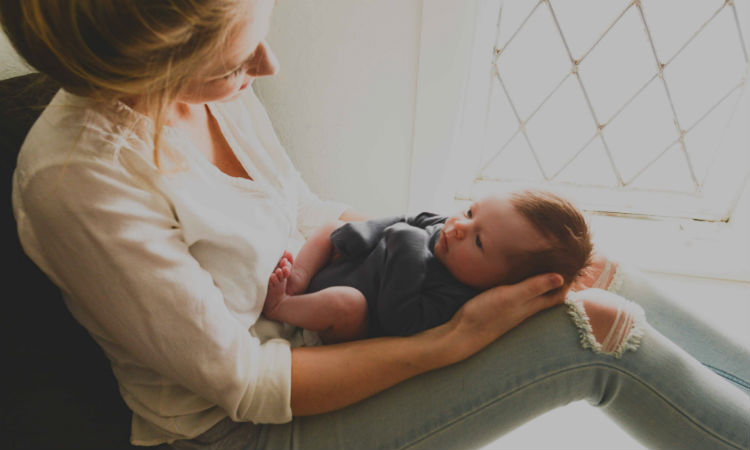
The first days after my son was born were a total blur of fumbled feedings, tears (his and mine), extreme exhaustion, feelings of inadequacy and terror, and more tears. Breastfeeding was off to a rocky start, my hormones were racing all over the place and I felt entirely ill-equipped to deal with any of it.
One of our first ventures out was to the pediatrician for a checkup. We’d met this doctor when I was pregnant and we’d liked him just fine. But that had been when I was a happy, functioning member of the human race. Postpartum me needed some serious gentleness and compassion in those raw, difficult first days. And I quickly realized that this doctor couldn’t really deliver that.
Besides just having a generally brusque and dismissive demeanor, the doctor pretty much blew off my aspirations to breastfeed, saying that if breastfeeding worked out, great, but if not, I should probably just give up. After weighing my son, he noted that he’d lost about 5 percent of his birthweight (which he himself admitted was normal), but cautioned that if he didn’t get back to his birthweight by our next visit in three days, we would need to talk about formula supplementation.
Now, I realize that the doctor wasn’t saying my chances of breastfeeding were over or that I would definitely need to supplement with formula but, to me, in my vulnerable, teary-eyed postpartum fog, I took it as a threat. And, as a mom who felt super passionate and determined to breastfeed my baby, I was terrified at the prospect of it not working out.
When I came home, I called my midwife, who’d been lovely enough to keep in touch daily in those first few rough days. I told her the whole pediatrician story and she agreed that the push for formula at such an early stage seemed unnecessary and fear-inducing. She was working closely with me to make sure my son’s feedings were improving, and I was pumping my own milk to supplement him until he could nurse well enough on his own.
Then, at a certain point during the conversation, my midwife took a long pause and said, “You know, you don’t have to go back.”
It was a moment I will never forget. Despite all my misgivings about the experience with the pediatrician, it hadn’t even occurred to me that I wouldn’t go back. As a new mom, I was just trying to do the right thing and it didn’t feel at that point that I had enough knowledge about really anything to make decisions like that. The fact was, I was terrified to do anything that felt subversive or questioning of a doctor’s authority.
In those eight little words, she opened up the door for me to make decisions for myself and my child, and to feel empowered enough to go against the grain if need be.
But my midwife gave me that power. She offered me a perspective I was too sleep-deprived and bewildered to even consider. And what she was suggesting wasn’t even as unorthodox as I was imagining it to be. She wasn’t suggesting I don’t got to a doctor at all, but that I could switch doctors or get a second opinion.
When I think about it now, I actually don’t even understand why I hadn’t thought of that myself. But when you are postpartum, your mind doesn’t really work as it should.
I got a recommendation for a different pediatrician, cancelled my appointment with the first doctor (unsurprisingly, no one cared) and found a sweet doctor who made me feel comfortable and supported. My son got up to his birthweight by the next appointment and ended up breastfeeding forever (well, it seemed that way!)
The point of the story isn’t just how well everything worked out in the end. It’s what that quick little comment my midwife made meant to me. In those eight little words, she opened up the door for me to make decisions for myself and my child, and to feel empowered enough to go against the grain if need be.
She supported me in following my instincts as a mother, and made me feel that my feelings and perceptions were just as important as anyone else’s. I was the mom, and I got to decide.
She helped me dig into my well of mama strength that I didn’t even know existed—and which I would draw from again and again on this crazy, often tumultuous ride of motherhood.
I heard her voice in my head, even after that incident, as I went through all the nitty-gritty, anxiety-producing decisions of raising a baby, a toddler and a young child. I think of her words even now, as I navigate the often more prickly and complex world of parenting older children and tweens.
New moms need help. They need people to cook them meals, clean their house, teach them how to care for their babies and balance it all. But they also need people who have their backs, lift them up and show them that—despite all the fear and hormones and tears—they are stronger than they realize.
For that, I will forever be grateful.




